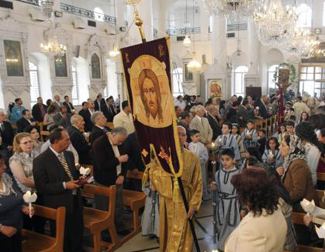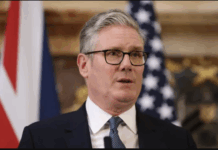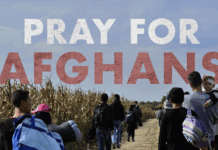By Mark Ellis

He was one of two Americans who investigated Saddam Hussein’s gassing of the Kurds in northern Iraq, and authored the Prevention of Genocide Act of 1988, which passed the U.S. Senate unanimously. Now he’s sounding the alarm about the plight of Christians and other minority groups in Syria.
“I’m against genocide and the plight of the Christians concerns me, but also the plight of the Kurds and Alawites,” says Peter W. Galbraith, former U.S. ambassador to Croatia and the author of two books on Iraq.
The population of Christians, Kurds, Alawites, and Druze make up about 35-40% of the Syrian population. Galbraith has been meeting with representatives of these minority groups over the last year. Without the support of these groups the opposition is unlikely to succeed — even with increased help from the United States, he maintains.

Galbraith notes a profound unease among Christians and other minorities about their prospects in a post-Assad Syria.
“I question a strategy that supplies weapons to the opposition, because the opposition is almost entirely Sunni Arab,” he notes. While some in the opposition favor democratic principles, a growing number are “extremists whose agenda is to create an Islamic state.”
As the Syrian civil war has unfolded, there have been unsettling changes on the ground. “The uprising did not begin as an Islamic uprising, but the extremists have become prominent in the fight, including foreign fighters,” Galbraith observes.
“This is morphing into a larger fight that goes beyond Syria. Basically, it’s a Sunni-Shiite clash.”
The end result of the civil war may not bode well for Syria’s minorities. “This makes Christians very nervous and the democratic opposition has done nothing to assure them that they will be protected in a post-Assad Syria.”
Galbraith notes that early in the conflict, a rallying cry of the opposition was “Christians to Beirut, Alawites to the grave.” (Bashar al-Assad’s family background is Alawite, and they have enjoyed a privileged status in his regime.)
“Alawites have every reason to fear genocide if the regime is overthrown,” he maintains. “Assad, for all his faults, ran a secular state that has been tolerant about minorities.”
Sadly, an unforeseen consequence of the removal of Saddam Hussein and Hosni Mubarak was increased persecution of Christians in Iraq and Egypt. “Christians in the Middle East tend to stay out of politics, focus on business and their communities,” Galbraith notes. “They are trusted by people in power because they don’t have an Islamist agenda. But that can put them at risk when the regimes are overthrown.”
The same pattern may emerge in Syria with U.S. help. Galbraith favors a negotiated diplomatic solution in Syria, rather than a U.S. bombing campaign. “People will get killed without accomplishing a purpose,” he maintains. “It will not degrade Assad’s chemical weapons arsenal.”
“The chemical weapons are all over the country. You can’t actually bomb them, because you release the material,” he adds. He believes U.S. military involvement will also undercut any moderate voices in Iran, particularly their new president.
Galbraith is not convinced Assad ordered the chemical attack on August 21st. “It is illogical,” he says. “I don’t think it was the rebels, but it could have been a commander.”
The current initiative from Russia should be explored, he says. “The Russian solution – if it works – will do much more to eliminate the threat of chemical weapons than an air strike. I don’t see any downside to seeing if it materializes.”




Comments are closed.